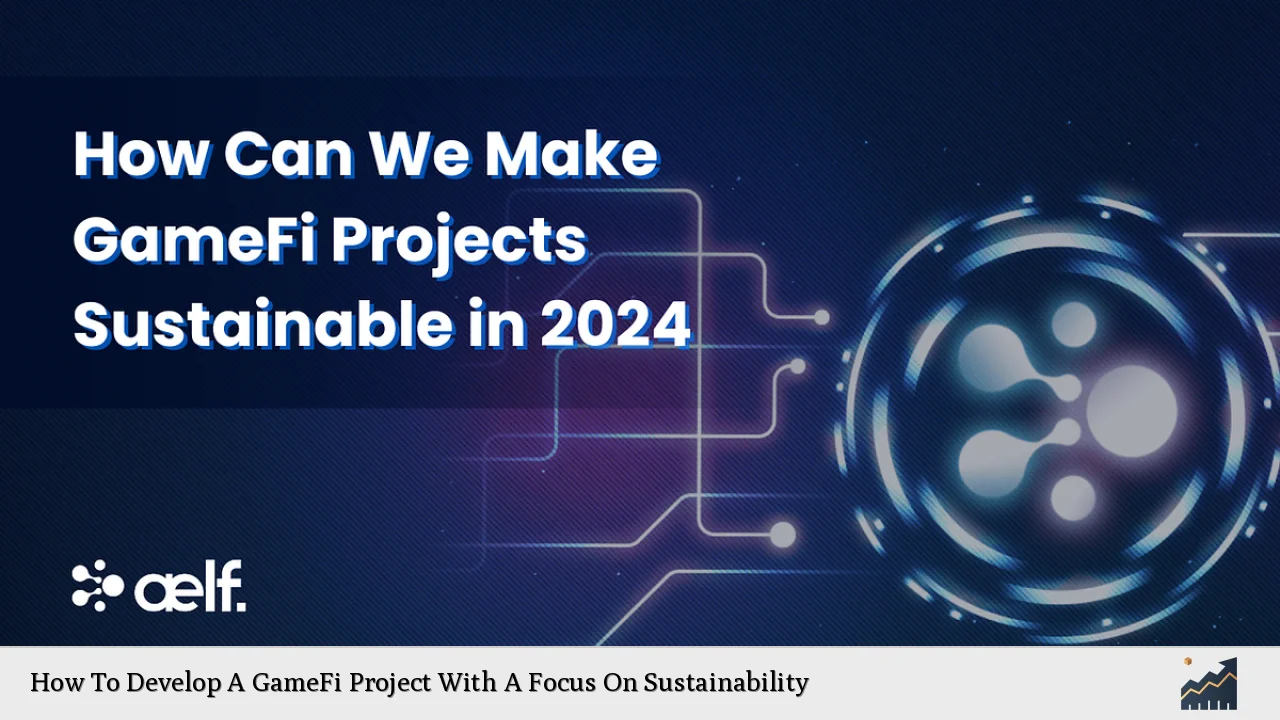The GameFi sector, which merges gaming with decentralized finance, has gained significant traction in recent years. However, the sustainability of these projects is a critical concern due to the high failure rates and volatile market conditions. Developing a GameFi project with a focus on sustainability involves understanding market dynamics, implementing effective strategies, managing risks, navigating regulatory landscapes, and preparing for future trends.
| Key Concept | Description/Impact |
|---|---|
| Market Growth | The global GameFi market is projected to grow from USD 19.58 billion in 2024 to USD 119.62 billion by 2031, with a CAGR of 29.5%. |
| High Failure Rates | Approximately 93% of GameFi projects fail within four months, highlighting the need for robust planning and execution. |
| Sustainable Tokenomics | Creating balanced token supply and demand is essential to prevent hyperinflation and ensure long-term viability. |
| Community Engagement | Active community involvement can enhance project sustainability through feedback and governance participation. |
| Regulatory Compliance | Navigating evolving regulations is crucial for maintaining project legitimacy and investor trust. |
Market Analysis and Trends
The GameFi market is experiencing rapid growth, driven by the increasing integration of blockchain technology in gaming. As of 2024, the market size is estimated at USD 19.58 billion, with projections indicating a compound annual growth rate (CAGR) of 29.5% through 2031. Key trends influencing this growth include:
- Integration with the Metaverse: Platforms like Decentraland are creating immersive environments where players can earn rewards through gameplay.
- Enhanced Interoperability: Players expect assets to be transferable across various games, pushing developers to adopt interoperable standards.
- AI Integration: The use of AI in game development enhances user experiences and optimizes in-game economies.
Despite these positive trends, the landscape remains challenging. Reports indicate that 93% of GameFi projects fail shortly after launch. This underscores the importance of sustainable practices in project development.
Implementation Strategies
To develop a sustainable GameFi project, consider the following strategies:
- Robust Tokenomics: Establish a balanced economic model that encourages long-term participation through staking mechanisms and governance tokens. This helps stabilize token value and incentivizes player loyalty.
- Continuous Development: Regularly update the game with new content and features to maintain player engagement. This includes introducing seasonal events or expansions that provide fresh earning opportunities.
- Community Building: Foster an engaged community through transparent communication channels such as Discord or social media platforms. Encourage feedback and involve players in decision-making processes to enhance loyalty.
- Security Measures: Prioritize security by conducting thorough audits of smart contracts and ensuring robust wallet protections to build trust among users.
Risk Considerations
While developing a GameFi project, it is essential to address potential risks:
- Market Volatility: The GameFi sector is characterized by high volatility; thus, developers should prepare for price fluctuations that can impact player investment.
- Regulatory Risks: Compliance with evolving regulations is crucial. Developers must stay informed about legal requirements in different jurisdictions to avoid penalties.
- Economic Sustainability: Poorly designed tokenomics can lead to hyperinflation or market crashes. Developers must ensure that there are sufficient use cases for tokens to drive demand while controlling supply effectively.
Regulatory Aspects
The regulatory environment for GameFi projects is complex and varies by region. Key considerations include:
- Licensing Requirements: Depending on the jurisdiction, developers may need specific licenses to operate their platforms legally.
- Consumer Protection Laws: Ensuring compliance with laws designed to protect consumers can help build trust and credibility.
- Tax Implications: Understanding tax obligations related to cryptocurrency transactions is essential for both developers and players.
Staying abreast of regulatory changes will help developers navigate this landscape effectively.
Future Outlook
The future of GameFi appears promising yet challenging. As the market matures, several factors will influence its trajectory:
- Increased Investment Caution: Following a significant drop in venture capital funding—from $5.56 billion in 2022 to $859 million in 2024—investors are becoming more selective about which projects to support.
- Focus on Utility: Projects that emphasize real utility for their tokens will likely attract more interest from both players and investors.
- Sustainability Initiatives: As environmental concerns grow, integrating sustainable practices into game design will become increasingly important for attracting environmentally conscious players.
In summary, developing a sustainable GameFi project requires careful planning, robust economic models, community engagement, regulatory compliance, and continuous innovation. By addressing these elements comprehensively, developers can enhance their chances of success in this dynamic sector.
Frequently Asked Questions About How To Develop A GameFi Project With A Focus On Sustainability
- What are the main challenges faced by GameFi projects?
GameFi projects face high failure rates (approximately 93%), market volatility, regulatory compliance issues, and difficulties in maintaining player engagement. - How can I ensure my GameFi project is sustainable?
Focus on robust tokenomics, continuous development of content, active community engagement, strong security measures, and adherence to regulatory requirements. - What role does community engagement play in GameFi?
Community engagement fosters loyalty among players, encourages feedback for improvements, and enhances governance participation. - How important is regulatory compliance for GameFi projects?
Regulatory compliance is crucial for maintaining legitimacy and building trust among investors and players. - What are effective strategies for tokenomics in GameFi?
Implement balanced supply-demand mechanisms, incentivize long-term participation through staking rewards, and ensure multiple use cases for tokens. - What trends should I watch in the GameFi sector?
Key trends include integration with the metaverse, enhanced interoperability between games, and increased use of AI technologies. - How can I mitigate risks associated with developing a GameFi project?
Developers can mitigate risks by conducting thorough market research, ensuring robust security measures are in place, staying informed about regulatory changes, and designing sustainable economic models. - What does the future hold for GameFi?
The future may see increased investment caution but also opportunities for projects emphasizing utility and sustainability as player expectations evolve.
This comprehensive guide aims to equip potential developers with insights into creating sustainable GameFi projects while navigating the complexities of this rapidly evolving industry.

